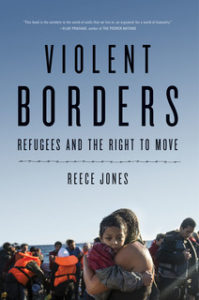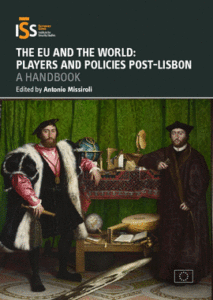

The Courtesan and the Gigolo: The Murders in the Rue Montaigne and the Dark Side of Empire in Nineteenth-century Paris
by Aaron Freundschuh
Publisher: Stanford University Press
Recommended by Hélène B. Ducros
At times referred to as the Parisian Jack the Ripper and at other times as an Oriental Don Juan, Egypt-born polyglot Enrico Pranzini, “a migrant, a colonial, and an alleged recidivist criminal” was tried and executed in 1887 for the triple homicide of Marie Régnault, a demimondaine known as Madame de Montille, her femme de chambre Annette Grémeret and Annette’s daughter Marie. This book traces this fascinating court case through the meanders of fin-de-siècle Parisian society. Reading like a thriller novel, this meticulously researched account goes beyond the fait divers by bringing to the fore a complex interplay of political and social forces in a changing city at a time in which national identity is challenged. Against the backdrop of nationalism, xenophobism and colonialism of the Third Republic, the book stages different actors pursuing various self-interests, from crime reporter and criminal anthropometry proponent, to medical examiner, police chief or judge, revealing how the character of the “seductive Levantine” at the same time captivated and worried a society in transition. This historical case will certainly lead to useful reflections on today’s context.

Violent Borders: Refugees and the Right to Move
by Reese Jones
Publisher: Verso
Recommended by Ozden Ocak
More than 40,000 people died in the last decade trying to cross international borders, the majority of them trying to enter Europe. In Violent Borders, Reece Jones counters the tendency to blame the rising death toll on human traffickers or even the refugees themselves who risk their lives, forcing us to reflect on “why is movement consistently a problem” and “why is the response so violent today.” Offering a historical analysis, Jones shows us in his book that states, across time and space, have always attempted to restrict movements and access to resources, in various ways including the city walls built in the medieval Age, land enclosures of the early capitalist era and the formation of the territorial nation-state system by the Westphalian Treaty. The source of the current global migration crisis is nothing but this motive of containing the poor and protecting wealth and privilege, which could be solved only by offering access to free and safe mobility for all. At a time when anti-immigrant sentiments galvanize populist nationalism in Europe and the U.S, Reece Jones’ Violent Borders is an invaluable contribution to our understanding of the purpose borders serve and the violence they inflict on people.
 The EU and the World: Players and Policies Post-Lisbon
The EU and the World: Players and Policies Post-Lisbon
Edited by Antonio Missiroli
Publisher: European Union, Institute for Security Studies
Recommended by Mihai Sebe
The public debate on what the EU does or does not and on the current constraints and future reforms needed in the field of foreign policy is in dire need of a handbook addressed to a wider audience that tries to strike a balance between accessibility of language and depth of analysis.
Antonio Missiroli’s edited volume A handbook – The EU and the world: players and policies post-Lisbon (2017) tries to provide this necessary bridge. The handbook provides detailed case studies and information on the institutional framework, the functional scope and the geographical reach at a time when the collective action at this level is under scrutiny. The European Union carries out its external action, starting with the Common Foreign and Security Policy (CFSP) and the Common Security and Defence Policy (CSDP), in a complex manner due to its evolution, which was not based on a previously agreed overarching design but generated by the accumulation of ad hoc norms, practices and bodies. If we add to this a high number of players with various interests then it is quite difficult to understand the European Union modus operandi.
The analyses of the main players in the EU system and their interplay, the presentation of past dynamics and the anticipation of possible trends to come are more than useful as we are at the beginning of the implementation of the 2016 EU Global Strategy (EUGS) on foreign and security policy, in a context marked by the beginning of the Trump administration in the US and the changes that the ‘Brexit’ vote would trigger. A must-read for anyone interested in EU “foreign policy.”

Exploring the EU’s Legitimacy Crisis: The Dark Heart of Europe
by Christian Schweiger
Publisher: Edward Elgar Publishing
Recommended by Malcolm Campbell-Verduyn
The legitimacy crisis facing the European Union is often noted but infrequently explored in sustained scholarly analysis. Christian Schweiger’s new monograph provides an original contribution by stressing the wider accountability, leadership, and governance implications of recurrent flaws in supranational attempts to address key challenges facing the region. Timely recommendations are provided not for simply for short-term technical fixes but for alleviating the long-standing trust deficit facing governance actors and processes across Europe.
Published on February 1, 2017.




